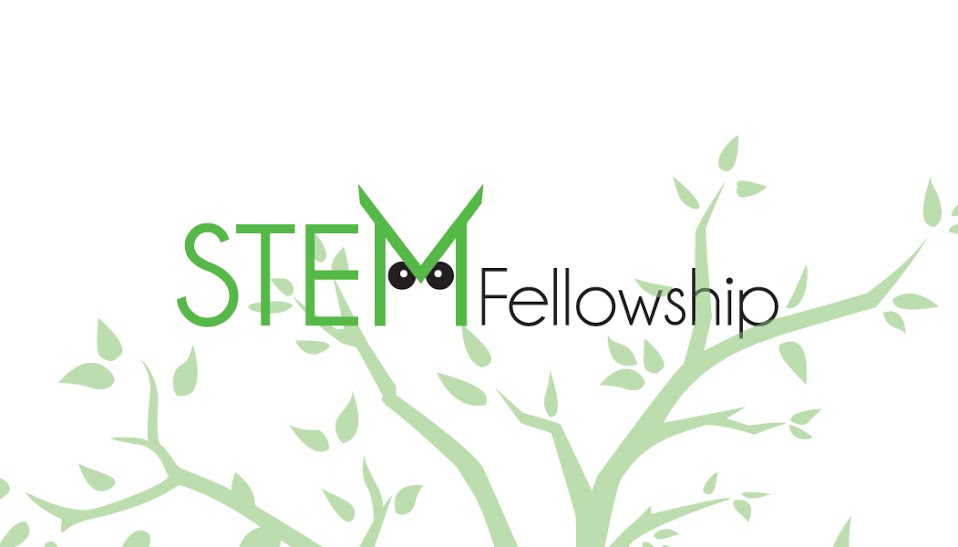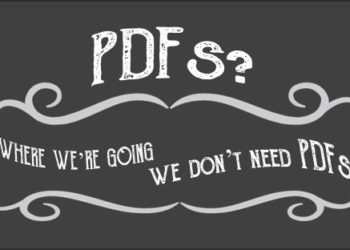Editor’s Note: Today’s guest post is authored by Hannah Rahim, Managing Director of STEM Fellowship, and fourth year student in Biomedical Sciences at the University of Calgary.
Did you know that around 2.5 million new scientific papers are published each year and there are approximately 28,000 active scholarly peer-reviewed journals? For the typical high school or undergraduate student who has not yet published in an academic journal, the world of scholarly communication may seem quite daunting.
The STEM Fellowship Journal (SFJ) aims to tackle this issue by providing high school and undergraduate STEM students with the opportunity for their first scholarly publication. The SFJ is an open access, peer-reviewed journal, published by Canadian Science Publishing.
The SFJ is unique from other student journals in that it is affiliated with STEM Fellowship – a federal, youth-led, non-profit organization of over 250 student executives — which creates unique STEM learning opportunities for students. The STEM Fellowship network, which spans over 20 universities and 40 high schools across 10 Canadian provinces, provides a framework of support for the SFJ, ensuring its sustainability and strengthening its connections to the Canada-wide community of STEM students.

I am the Managing Director of STEM Fellowship and am entering my fourth year of an undergraduate degree in Biomedical Sciences at the University of Calgary. As a student, I have seen firsthand the potential for young researchers to contribute to enriching the existing body of scholarly literature. Yet, many factors including open access publication fees, complicated submission processes, and limited exposure to scientific writing often stand in the way of students’ ability to share their research in academic journals.
SFJ seeks to not only serve as a platform for STEM students to share their work, but also to guide these students through their first scholarly publication. Manuscripts submitted to our journal are first reviewed by our student editorial board, who offer individualized feedback to authors in a unique mentorship process that is not commonly found in larger journals. Prior to publication, manuscripts are also peer-reviewed by professionals with PhD, PharmD, or MD degrees in a STEM field relevant to the topic of the article.
At STEM Fellowship, we recognize that some barriers to including young researchers in STEM scholarly communication can pertain not to the process of manuscript writing and publication itself, but instead to a lack of research opportunities, or even a lack of knowledge of STEM outside the classroom. Therefore, in addition to the SFJ, we coordinate various mentorship and experiential learning programs to enable youth to develop skills in research, data analytics, and inquiry.
Our flagship program is the Big Data Challenge, in which teams of students analyze open data with the aim of identifying patterns that can be applied to address socioeconomic, health, or environmental issues in their local and global communities. Student participants are provided with data sets, learning resources, and tools for data analysis and receive guidance from peer and academia or industry expert mentors.
Over 234 undergraduate students from across Canada are participating in our current undergraduate Big Data Challenge, which encourages students to use a computational methods approach to quantify the impact of recreational drug use on human health and society.
Another central initiative of STEM Fellowship is our STEMpowerment Research Opportunities Exploration, which provides opportunities for high school students from communities traditionally underrepresented in STEM to engage in cutting-edge research in a laboratory at their local university.
We hope that these programs will emphasize to students that STEM research cannot and should not be confined to a laboratory or a computer, and encourage students to think critically in the application of data and theoretical STEM concepts to broader issues in the community.
Additionally, we have noticed that STEM knowledge obtained through an instructor-driven in-class model of education may not resonate with some students and can serve to demotivate them from pursuit of STEM fields. Through our student-driven, hands-on approach, we seek to spark passion for STEM in students with learning styles not accommodated in traditional education, thereby fostering diversity in STEM.
My own experience with STEM Fellowship has enriched my understanding of relationships between STEM research and societal implications such as developments in policy and innovation. I have sought to further explore this area by conducting research at the intersection of health and social sciences; for instance I just completed a research study examining maternity care providers’ perceptions of the health and socioeconomic consequences of birth tourism and international surrogacy for patients and the Canadian health care system.
Leading STEM Fellowship has also piqued my interest in organizational management and business strategy, areas to which I may not have gained exposure through my undergraduate science degree. I am pursuing these interests this summer through an internship with the Boston Consulting Group, in which I hope to apply skills I have developed through STEM Fellowship while gaining further insight into problem-solving in a business context.
STEM Fellowship has provided me with the invaluable opportunity to work with a community of passionate, driven students in pursuit of a common goal. While running an organization of over 250 student volunteers distributed across the country does have its challenges, I am continually inspired by the dedication of our team and the unique skills and perspectives possessed by our members. I look forward to continuing to work with our team to share our love for STEM and research with the next generation of youth innovators.
Feel free to contact me at hannah.rahim@stemfellowship.org if you are interested in learning more about STEM Fellowship, joining our organization or partnering with us!
Discussion
5 Thoughts on "Guest Post: STEM Fellowship — Providing High School and Undergraduate Students Opportunities to Publish"
Thanks Hannah, and Angela for this guest post, I echo the great work being done by STEM Fellowship, and the journal that is supported by Canadian Science Publishing. I first got to know STEM Fellowship via the SSP Fellowship program 4 years ago, and being paired as a mentor with the previous Managing Director, Mohammad Hossein Asadilari, who’s a real ambassador for the group. Dr Sacha Noukhovitch the Founder is a true visionary, changing the way students are inspired and educated. This short video about the Big Data Challenge really captures the essence of what and who STEM Fellowship are https://www.youtube.com/watch?v=YuLkklD8vGk&feature=youtu.be I encourage others to connect and find out more about the group … these new authors, science fair winners, students, and volunteers are the future of research and the next group of authors who may publish or engage with your publications!
I echo your sentiments, Adrian, and am grateful that Canadian Science Publishing has also had the opportunity to work with this amazing group of young scientists and Dr. Noukhovitch. Our future is in good hands.
This sounds like an excellent program, thank you for sharing! Here in the US we have something similar for high school students which I can also point people to– Sixma Xi (a scientific research honor society) has a peer reviewed journal for high school students called Chronicle of the New Researcher. https://www.sigmaxi.org/publications/chronicle-of-the-new-researcher
I’m pleased to learn about this. I was not familiar with this fellowship or the Chronicle of the New Researcher mentioned by Michelle English above. With worries about the less-than-desired numbers of students choosing STEM careers, this is a move in the right direction. Great work on this guest post, Hannah!
It is great opportunity for high school students but I believe we need an alternative model of publishing. It seems unreasonable to expect them to pay $200 per paper in this digital era where making blogs is completely free.



